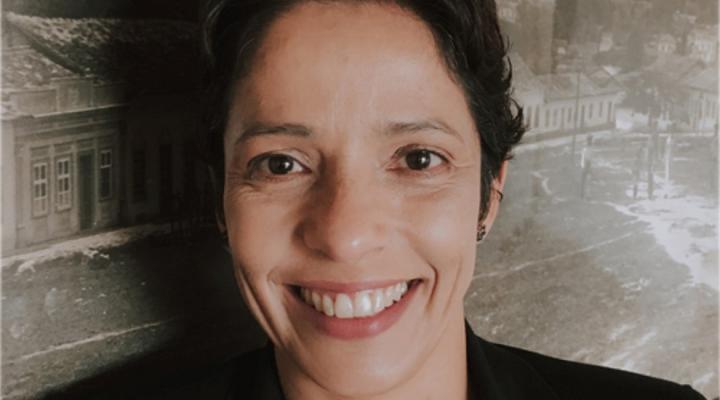
Translating innovative health technologies from concept to market.
Welcome new senior lecturer Suélia de Siqueira Rodrigues Fleury Rosa. Read more about Translating innovative health technologies from concept to market.

Hometown: Grosse Pointe, Michigan
BME Degree Program: B.S. in BME, Molecular, Cellular, and Systems Engineering (MCSE) concentration
Lab affiliation/Adviser: Jonathan Butcher
Peyton Lancaster’s interest in biomedical engineering stems from firsthand experience as a patient. “I was born with four congenital heart defects and am healthy today thanks to the work of biomedical engineers and medical professionals who developed engineering innovations in diagnostic devices, treatments and therapeutics.” In her case, these innovations included the double switch heart procedure and improvements to diagnostic tools such as heart monitor devices.
Lancaster was drawn to Cornell Engineering for its collaborative learning environment and the opportunity to get involved early in undergraduate research. “Cornell was one of the few schools I found to encompass these priorities, and I was especially drawn to Cornell’s welcoming environment and beautiful scenery.”
Since freshman year, Lancaster has been involved in undergraduate research in the Butcher Lab, working with a Ph.D. candidate mentor, Shuofei Sun, on his project understanding the mechanobiology of heart valve development. She also spent her summer 2023 break in a cardiovascular research experience in Eindhoven, Netherlands, studying the immune response of neutrophils on different biomaterial surfaces including decellularized heart valves.
She has enjoyed exploring each BME concentration at the Meinig School, but says it’s the molecular, cellular, and systems engineering (MCSE) focus that provides the best framework for her interest in understanding how heart diseases and congenital malformations develop.
Of her Cornell experience so far, Lancaster says it’s the collaborative learning environment that stands out. “I’ve never felt a sense of competitiveness between student engineers that can often be found in other engineering programs. The curriculum and professors here do an outstanding job encouraging collaboration. Classes promote working in groups for problem sets, providing study partners, and requiring group projects. Students are not afraid to help each other understand difficult topics. All of this has developed a supportive community that I truly appreciate.”
Outside her scholarship activities, Lancaster values participating in and leading service activities. As the co-chair of the Student Advisory Committee for the Cornell Tradition fellowship, she helps plan service events across campus and in the Ithaca community. She also coordinates volunteers to sell 50/50 raffle tickets for the Cornell Hockey Association, and hosts Park Cleanups. “I especially love serving as a volunteer in the Ithaca community at Chili Fest and Porchfest every year.”
She also enjoys connecting her engineering background with service projects such as the GoBabyGo event hosted each year in collaboration with Ithaca College. “Cornell Engineering students and Ithaca College physical therapy students work together to modify rideable toy cars to make them accessible to children with mobility issues. Seeing how happy the kids were to be able to use the cars was a very gratifying experience and motivated me to continue to find ways to use my engineering background to help others.”
Her advice to students considering biomedical engineering? “Don't be afraid to ask for help. I could not have been as successful without asking questions and collaborating with others. Talking to professors, teaching assistants or even other students can make a huge difference in helping understand difficult concepts.” Through her engineering courses and working in various research labs, Lancaster says she has learned to work with a variety of people with different work styles. These skills, says Lancaster, “have made me both a better leader and team member.”
Motivated by her research experiences at Cornell, Lancaster plans to pursue a Ph.D. in biomedical engineering with a focus on either cardiovascular research or neurodegenerative disease. “There is still so much to learn and explore within BME, and a Ph.D. will strengthen my BME background and further establish the skills I need to be a successful engineer. Ultimately, I want to make an impact in the medical field and to improve the lives of future patients through engineering just as others did for me.”
Favorite quote that inspires Peyton’s work/life:
“Your life isn’t yours if you always care what others think.”
- Norm Kelly



